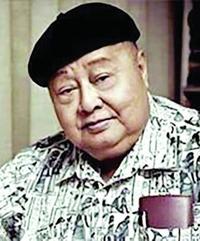 |
|
| F. Sionil José | |
F. Sionil José, the author of "a dozen socially engaged novels and countless short stories and essays who was sometimes called the grand old man of Philippine letters and even the conscience of his nation," died January 6, the New York Times reported. He was 97. José's writing, "rich in themes drawn from his rural upbringing, amounted to a continuing morality play about poverty and class divisions in the Philippines" and often explored "his anguish over what he saw as his country's failure to overcome centuries of Spanish colonization, followed by further domination by the United States."
José founded the Philippine chapter of PEN International and "was a public figure in the world of letters, traveling often to lecture and to attend writers' conferences, and he was bursting with energy even into his 90s," the Times noted.
He opened and ran a bookshop in Manila, Solidaridad, which published his work and offered books and magazines that were hard to find elsewhere in the Philippines. He also published Solidarity, a monthly journal of "current affairs, ideas and the arts."
José wrote more than 35 books, all in English, with the core being the Rosales Saga, five interconnected novels published over 20 years, beginning with The Pretenders (1962) and continuing with My Brother, My Executioner (1973), Mass (1974) Tree (1978), and Po-on (1984). He received many awards, grants and fellowships from abroad as well as in the Philippines, where the government named him a National Artist for Literature. His works have been translated into 28 languages.
In a tribute posted on Facebook, Philippine Center of International PEN noted, in part: "Through his prolific pen and prodigious energy, National Artist for Literature and Philippine PEN founder F. Sionil José transformed profoundly the country's cultural landscape by reconciling creative dedication and social commitment.... José was also a cultural dynamo who founded and managed a well-loved bookstore and cultural hub, set up a publishing house and edited a magazine that scholars now say helped 'construct' Southeast Asia and make Southeast Asian studies the vibrant field of study it is now, and held conferences and forums featuring local and foreign writers, artists, and experts to influence Philippine and Asian development directions."

